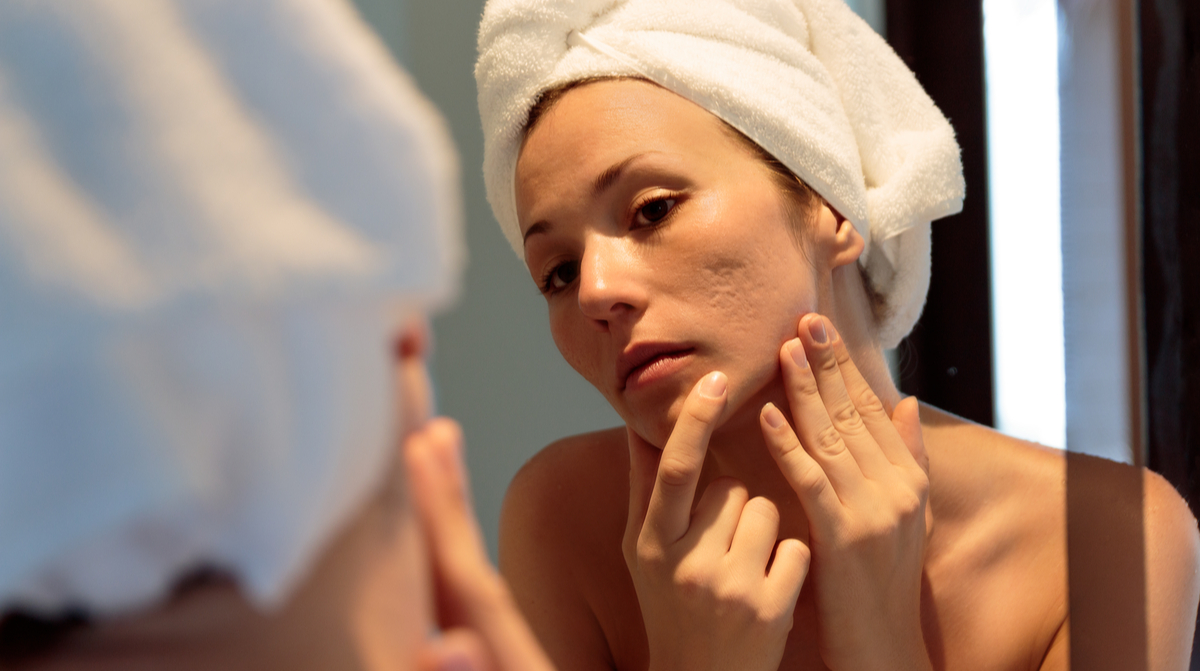
Recovering from your cosmetic surgery should be a time of excitement, fulfillment, and enhanced confidence. But excessive scarring following your surgery can quickly sour this experience and even create new insecurities. In this piece, we’ll break down the basics of scarring - why it happens, how to prevent it, and what you can do to treat it after the fact so you can move forward with the utmost confidence.
What Causes Scarring?
Scarring is the result of new collagen forming at the site of an injury to heal and close the wound. Scars are a completely natural part of the body’s healing process, and most injuries that harm the skin will result in scarring to some degree.
The most common reasons for scars include:
- Injuries, such as cuts or burns
- Infections
- Acne and similar skin conditions
- Surgeries
How Long Do Scars Take To Go Away Without Additional Treatment?
Without treatment, scars can take up to two years to fade. Most scars that go untreated never fade entirely, especially for individuals with darker complexions.
Related: All About Scarring - What Can Help?
How We Minimize Scarring
Here at the Advanced Center for Plastic Surgery, we believe in using cosmetic surgery to help our patients feel radiant, beautiful, and most importantly, comfortable in their skin. To support this mission, we take special care to minimize or eliminate scarring, allowing our patients to move forward without any reservations or lingering insecurities after their procedure.
Our prevention and treatment plans typically include advice such as:
- Guidance on the best vitamins, minerals, and diet to minimize or eliminate scarring
- Moisturization techniques to support healing and rejuvenation of the skin
- How to use scar prevention gels and creams
Silagen - Our Anti-Scarring Secret Weapon
Silagen is a topical silicone gel that softens, flattens, and reduces the redness of any kind of scar. Silagen is unique among scar refinement gels and creams because it moisturizes and rejuvenates the skin while it heals, leaving behind silky smooth skin free of the sticky residue that is common with other topicals.
Three Tips for Preventative Scar Treatment
An ounce of prevention is worth a pound of cure. Taking certain steps during the healing process can dramatically reduce the visibility of scars.
1. For Less Scarring, Take Your Vitamins
Multiple vitamins improve the resiliency and healing ability of the skin, making them perfect for minimizing post-op scarring. Vitamins B, C, and Zinc all minimize scarring by enhancing protein synthesis and boosting natural collagen production.2. Take Wound Care Seriously for Smoother Skin
Using anti-scarring silicone creams, topicals, and strips early and often after your cosmetic surgery can prevent the formation of deep scars while reducing redness and inflammation.3. Use Sunscreen to Speed Things Up
Using sunscreen rated SPF 30 or higher, on a daily basis, can reduce discoloration and speed the fading of new scars. Be sure to use a full-spectrum sunscreen and reapply to the area regularly for the best results.Acne Scarring - What Procedures Can Help?
We offer a variety of treatment options for acne scarring, including steroidal injections and chemical peels.
Steroidal Injections
Steroid injections reduce the appearance of acne scarring by breaking down bonds between collagen fibers. This reduces the amount of scar tissue beneath the skin, decreasing inflammation and visibility. Steroid injections are relatively painless, require no anesthesia, and can be completed in as little as 15 minutes.
Chemical Peels
Chemical peels are strong acids that work much like laser resurfacing. Chemical peels can reduce scars ranging from mild to very deep by removing the upper layer of skin. Mild chemical peels can take between 7 and 14 days to heal entirely, while the redness and inflammation that follows deeper chemical peels may persist past the two-week mark.
How We Treat Existing Scars
Existing scars can also be treated to reduce their visibility and discoloration. A regular moisturizing routine can soften scars, and a balanced diet rich in vitamins and minerals can enhance your skin’s natural healing ability and support smoother, brighter, and healthier skin. Scar prevention topicals can also treat existing scars by penetrating hardened keratin and breaking down scar tissue.
Prevent Unnecessary Scarring With ACPS
We understand the impact scars from cosmetic surgeries can have on your confidence and self-esteem. That’s why we take the time to educate and equip our patients with the best tools and information to minimize scar formation following their cosmetic procedure. We provide comprehensive scar prevention and treatment plans and offer industry-leading anti-scarring topicals, creams, and strips to support a healthy healing process and rich, blemish-free skin. To learn more about how we minimize scarring for our patients, reach out to Dr. Fischer’s team today.



